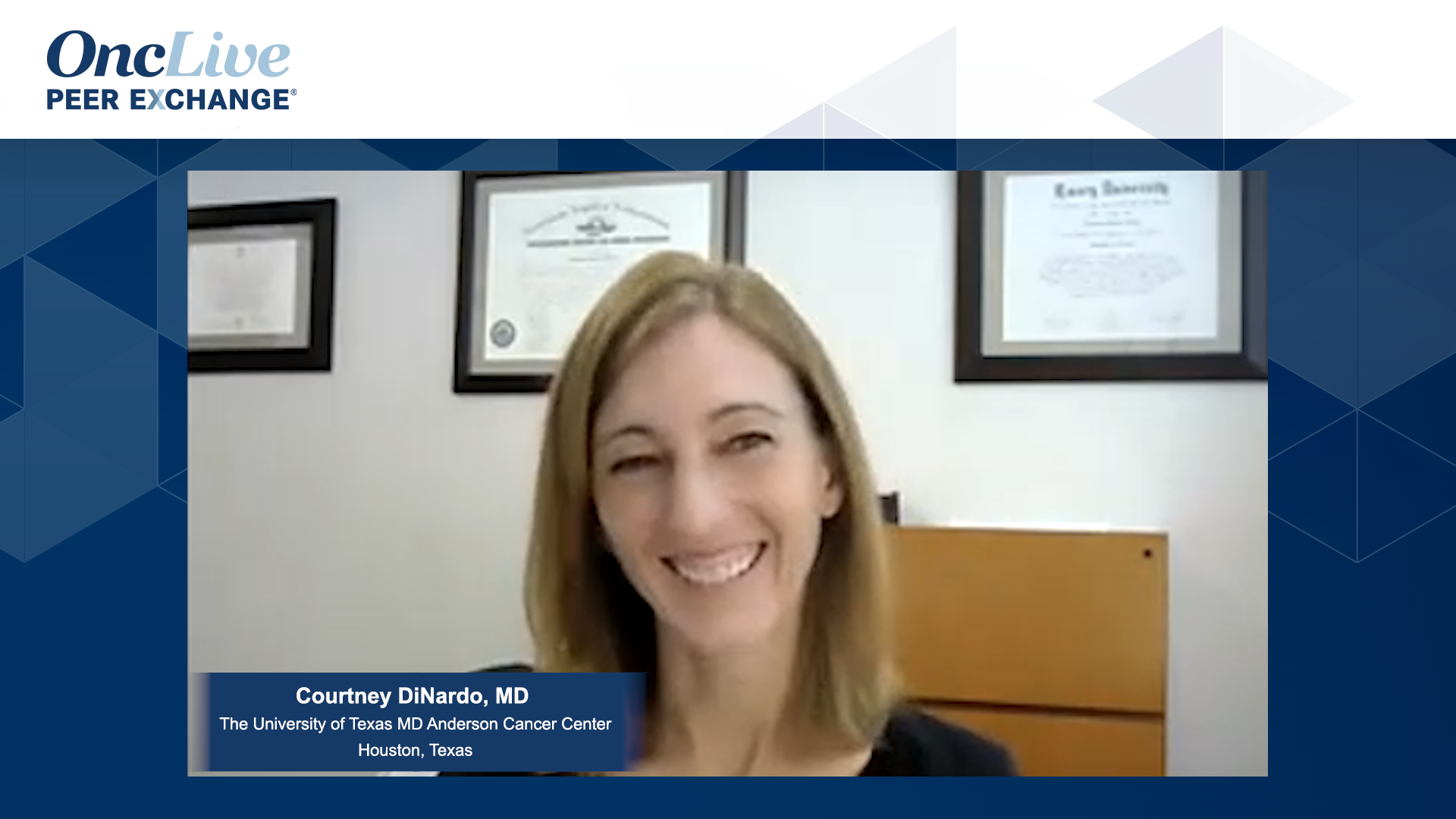
Treatment Approaches for TP53-Mutated AML

Key opinion leaders in hematology oncology share insights into the challenges associated with treating patients with TP53-mutated AML and highlight the recent FDA breakthrough designation of eprenetapopt.
Harry Erba, MD, PhD: Let’s close with 1 of the greatest challenges that we still have in treating AML [acute myeloid leukemia]: those 5% to 10% of patients with TP53-mutated AML. As Mark said, it can often be smelled out by a FISH [fluorescence in situ hybridization] panel with multiple changes or a complex monosomal karyotype. It’s more common in patients with therapy-related AML. Courtney, there are a couple of things that have been looked at: eprenetapopt, or APR-246, and anti-CD47. Do you want to say a few words about those approaches for this population?
Courtney DiNardo, MD: The most important thing is to recognize when you see a TP53 mutation. It’s almost invariably associated with treatment resistance to our approved therapies. Patients with TP53 mutations often have complex cytogenetics. They often have therapy-related or secondary AML. They don’t respond well to cytarabine-based therapy, and there’s accumulating evidence that they don’t respond well to venetoclax-based combinations either. These are patients for whom clinical trials are something we’re hoping will provide the next new breakthrough. There was an FDA-breakthrough designation of eprenetapopt, or APR-246, which is a small-molecule reactivator of mutant TP53, or that’s how it’s being described.
It’s a relatively new compound with a storied past. There was a frontline randomized study for MDS [myelodysplastic syndrome] that failed to meet its end point, but responses were still improved with APR-246 with azacytidine. Everyone has been hoping that we’ll see some increased activity in patients with AML. We don’t have a lot of that data, but we’re excited to see that. Regarding CD47—antibodies to CD47, in particular—magrolimab is the 1 that has been the furthest along in clinical trials. It wasn’t designed specifically for patients with TP53, but it seems to be TP53 independent or agnostic, and response with azacytidine in the frontline AML population with TP53-mutated disease looks favorable. I don’t think we need to get into too many of the numbers because it’s still early with the data, but the hope is that we’ll see improvements in these patients with these new therapies.
Harry Erba, MD, PhD: The industry sponsor of APR-246, or eprenetapopt, was planning on a success with a phase 3 study or randomized phase 2 study with patients with high-risk MDS with TP53 mutation of azacytidine vs azacytidine with APR-246. It was powered to try to see a 50% improvement in CR [complete remission] rate, and it fell short. I still think there’s something to this drug, and a lot of investigators and I are quite interested in it. We’ll see if a future investigation brings anything for these patients with either the anti-CD47 approach or with this TP53 modulator eprenetapopt.
Mark Levis, MD, PhD: Or both.
Harry Erba, MD, PhD:Or both together, yes. Also, in the MyeloMATCH platform—because all the drugs are going to be supplied through CRTAs [Cancer Research Training Awards] through the NCI [National Cancer Institute]—1 benefit of such an approach is that we can do novel-novel combinations. Those studies are being planned with the support of some of those industry sponsors. The details are being worked out, but that’s what we’re hoping to do.
Vinod Pullarkat, MD: With the APR-246, the partner drug is particularly important. If you don’t combine it with the right agent, it may look like it’s not any better. I’m questioning whether the…azacytidine was the right combination. Maybe it needs to be with azacitidine and venetoclax or maybe with chemotherapy. There’s more to explore with these combinations.
Harry Erba, MD, PhD: Completely agreed. I hope to see both—definitely the APR-246—moving forward in different combination studies.
Transcript Edited for Clarity




































